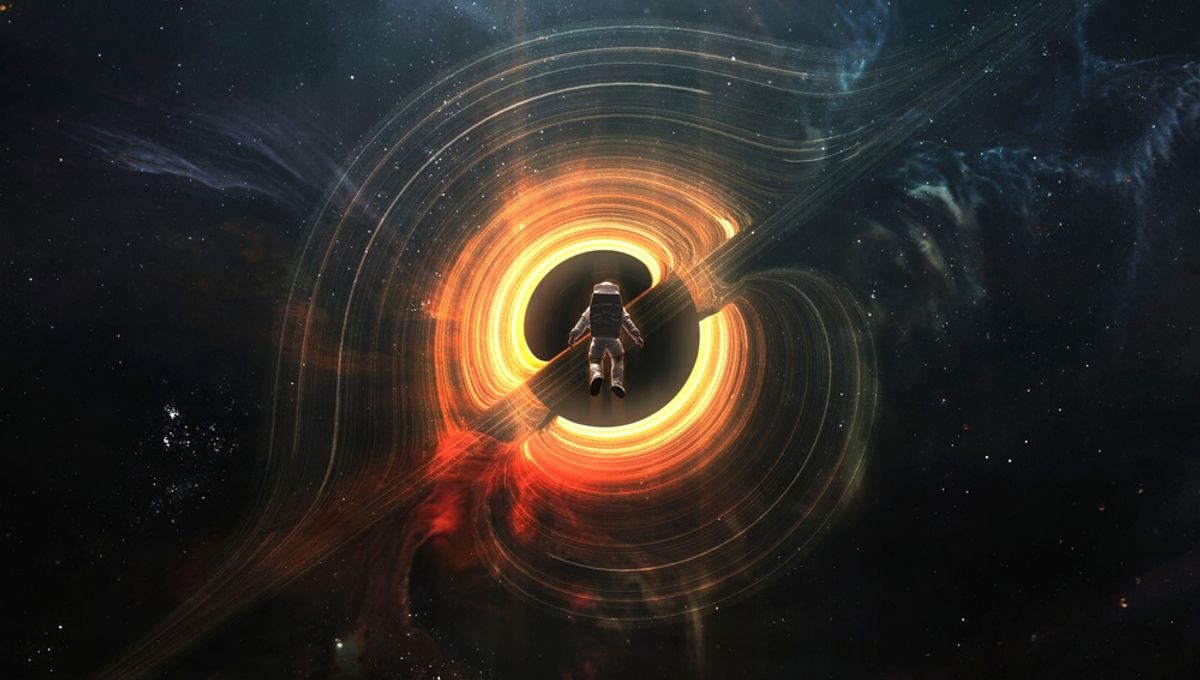
If you ever get the chance to travel unimaginable distances across the universe by falling through a wormhole you’ll probably never see your friends and family again. At least, however, you may have a chance to tell them you love them before you go. Who says the universe is a cold and uncaring place?
This is all rather speculative of course since we don’t even know if wormholes exist. That hasn’t stopped physicists from devoting a lot of intellectual bandwidth to thinking about how passages between different parts of the space-time continuum would operate if they are real.
In Physical Review D, Professor Ben Kain and colleagues at the College of the Holy Cross, Massachusetts, explore the question of information transmission through wormholes when mass has gone the other way.
After decades of debate, Professor Mike Morris and Nobel Prize Winner Kip Thorne published a paper in 1988 that convinced many (but not all) physicists that general relativity theoretically allows matter to pass through wormholes, coming out elsewhere in this or other universes. Since then, discussion has shifted to questions such as whether wormholes would involve forces that would destroy any living thing that passed through them, and if two way travel is possible. The transfer of massless information is also a favorite topic.
A key feature of the wormholes modeled in work like this is that they appear to be temporary. After a relatively brief period (at least for the age of the universe) the “throat” of the wormhole will close, preventing further passage. Indeed, in the most closely studied form of wormhole, known as Ellis-Bronnikov-Morris-Thorne wormholes, the passage of matter through the hole automatically triggers collapse. This may sound too much like a science fiction writer’s dream to be true, but it’s also what those who have built on Morris and Thorne’s work have found.
Consequently, it is likely that anyone traveling through a wormhole won’t be able to return or tell the world about it, making it uncomfortably close to standard representations of an afterlife.
It takes a lot of complex maths to get there, but Kain and co-authors conclude that is not quite right. The throat of an Ellis-Bronnikov-Morris-Thorne wormhole will collapse after a pulse of matter passes through, but there is time to send a light signal through before this occurs.
Ideally, the mission passing through the wormhole could provide some indication of what they find. Kain thinks this might occur, but doesn’t expect astronauts to do it. “Just the capsule and a video camera. It’s all automated,” he told Science News. Moreover, Kain doesn’t rule out the possibility of other types of wormholes that stay open long enough to make a return journey, although how this might occur has yet to be modeled.
Conclusions like this become much more interesting if we find evidence for wormholes’ existence. That might seem a long way off, but a paper published last year demonstrated we might already have seen them. According to the authors of that paper, seen from the right angle, a wormhole and a black hole would look sufficiently alike that the two black holes we have observed in detail could both be wormholes and we wouldn’t know.
The paper is published in Physical Review D.
Source Link: Travelers Through Wormholes Might Get Time For One Last Message